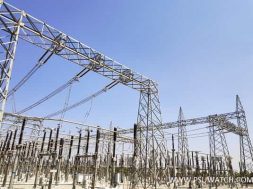
From vision to green-tech unicorn: Lessons from Enpal – EQ Mag Pro
Enpal’s CEO and founder discusses how an interest in solar installation fueled the creation of a company moving toward full-scale green energy and mobility systems.
Consumers are increasingly demanding sustainable products and services, and research from Leap by McKinsey shows that more than 90 percent of businesses plan to meet this demand in part through new-business building. Enpal, a green-energy start-up, is helping address the climate crisis by making solar installation and energy storage a viable and affordable option for consumers. While many people are interested in adopting solar, moving customers from interest to purchase has often been complicated by technical and cost barriers. In a conversation with McKinsey’s Jerome Königsfeld, Enpal CEO and founder, Mario Kohle, shares his vision of solar-based climate action and reflects on his experiences making a sustainable energy-generation solution a “no-brainer” for everybody. Kohle discusses how to tackle a big vision step-by-step, what kinds of people he hires to lead his company, and the importance of embracing a test-and-learn culture.
Key insight #1: Get customers on board with new technology by making adoption easy and reducing risk.
Jerome Königsfeld: Enpal is one of the fastest-growing green-tech companies in the world, with more than 1,700 employees. What was the motivation behind launching Enpal?
Mario Kohle: I did some research and discovered that we will run directly into a climate catastrophe if we don’t do enough solar installations. To address this problem, I used the “first-principles thinking” approach. I saw that solar installations and energy storage were already available, and electric cars were about to come to the market. I also learned that over 90 percent of people interviewed in surveys said they supported rooftop solar energy systems.1 However, only about 10 percent of all homeowners with suitable rooftops in Germany purchased a solar installation.2
I hypothesized that while solar is a product that many people want, only a few will get it because a no-brainer solution didn’t exist. At that time, customers who wanted to adopt solar needed to make a large up-front investment and answer several technical questions on their own, such as, “What is the right inverter?” or ”What is the right service provider?” They had to assume a lot of risk.
Jerome Königsfeld: How does Enpal address these pain points?
Mario Kohle: The primary question we wanted to answer was “What should a solar installation look like so that everyone wants one?” For example, in the automobile industry, car loans made the decision in favor of the automobile a no-brainer by significantly reducing up-front costs and risks.
So, we came up with a product package where customers can lease solar panels, storage, and charging technology for zero euros as an initial investment, and going forward, they pay lower monthly rates compared with what they paid for power and gasoline combined. We also give customers peace of mind, because we take care of all the maintenance. And after 20 years of operation, we will sell them the entire installation for one symbolic euro.
Key insight #2: Achieving a vision is a creative process that requires measurable actions.
Jerome Königsfeld: How did you validate this business concept?
Mario Kohle: Being short on resources is both a challenge and a source of innovation for start-ups; you must go step-by-step rather than doing everything at once.
We started by proving that customers would buy solar installations online without a direct sales contact or ever visiting a store. Next, we switched from a purchase option to a rental option, and sales accelerated. Then we added power storage and a power contract to the solar installation, proving that we can expand our service and value-creation potential within households. Now we are adding a wall-box charging station for electric vehicles to our package.
Jerome Königsfeld: When did you realize that you had validated your hypothesis?
Mario Kohle: As a start-up, you encounter new problems every day, so it’s easy not to notice when things are working, even when you get traction. Instead, you recognize success when you step out of day-to-day operations, such as during the summer get-together, at the Christmas party, or during employee appraisals, and see that you’re increasing sales and all your customers are happy.
Key insight #3: Hire the very best people and give them room to do their jobs.
Jerome Königsfeld: How did you find the right talent to sustain your rapid growth? Which profiles do you look for?
Mario Kohle: When you hire people, two things are important: they should have a high level of passion for their work and its purpose, and they must be really good at what they do. Once you have these people on board, you try to build teams that have complementary profiles and that are moving in the same direction.
For example, we realized that while our leadership team is very diverse, most of us are insecure overachievers and work from a place of self-motivation and ambition, but not because we want to be seen. When we started to scale hiring, we noticed that most of our employees took the same approach to their work regardless of their industry backgrounds.
Jerome Königsfeld: And why do they come to Enpal?
Mario Kohle: We are an entrepreneurial-minded company. Many of our people say that they either wanted to build a start-up or work with us. They appreciate that Enpal supports their vision of making a significant holistic impact on humanity so that we can all live longer, brighter lives.
Key insight #4: Leadership choices are not trivial. Leaders must selectively engage in topics from the highest level to the smallest.
Jerome Königsfeld: As you moved from the phase with initial founders toward becoming a unicorn company, how did you manage culture, communication, and management?
Mario Kohle: It was learning by “thesis, antithesis, and synthesis.” A thesis could be “I do everything by myself,” which will fail. So, you move to the antithesis, “I don’t do anything by myself and delegate everything,” which will also fail. Then you move to the synthesis, “I do something in between and focus on things that only I can do.”
It’s also important to remain honest with yourself and others so that you can respectfully and productively discuss challenges within your company. The best way to establish this working model is to build a culture that seeks truth. It is better to disturb the harmony within your company than to receive feedback via the market.
Jerome Königsfeld: What are some topics you cover yourself and what topics do you delegate?
Mario Kohle: I do a wide spectrum of things, and those choices are not trivial. I cover areas from strategic topics like the development of our partner network and our master plan to HR topics like the setup of our senior team to topics that we call “operational excellence” but that take place at the nano level. One example of a nano-level concern could be, “What is the issue with Mrs. Muller’s solar installation? How did this issue develop, and how can we ensure it doesn’t reoccur in the long term?”
I generally try to work under two maxims: “Only do what only you can do,” and “Hire people to whom you can delegate your tasks.” In other words, I try to work on the company rather than in the company.
Jerome Königsfeld: How do you effectively manage the day-to-day business for a company with more than 1,700 employees?
Mario Kohle: We have monthly virtual town halls with all employees.
We also have an operational-excellence meeting every day, where we review our key performance indicators, which include the basics, such as customer satisfaction, purchased and delivered solar installations, and conversion rates. This approach allows us to implement improvement levers daily and course correct if necessary. Our philosophy is that things you don’t measure don’t happen.
Jerome Königsfeld: What’s the new working model at Enpal: in-person, remote, or hybrid?
Mario Kohle: Hybrid is the new normal. It is important to spend a lot of time together in the office whenever you onboard new people, to embed culture and develop trust. However, once those things happen, you can go back to working remotely. A good, focused day at home where you can structure your thoughts is valuable. After that, it is good to come back to the office to meet with colleagues and share those ideas.
Key insight #5: Start-ups acquire operational excellence by continuously testing and learning.
Jerome Königsfeld: What are some key insights from building Enpal?
Mario Kohle: To me, the core of entrepreneurship is “We make mistakes, reflect on them, and try to avoid them in the future.” The advantage of having started a company before is that I had already made many mistakes and didn’t need to repeat them. For instance, I learned that a very good person placed on the right issue is ten to 100 times better than simply a good person in the same position. That’s why I spend a lot of time finding and developing very good people for Enpal.
We also try not only to hire very good people but to build an environment where they work without restrictions and thrive. This doesn’t mean that we don’t offer coaching; rather, if we want people who think entrepreneurially, we must give them room to live up to that way of working.
You can also craft big ambitions if you work with the right amount of humility. Projects often fail because the ambition was not high enough or the working model was not humble enough.
Jerome Königsfeld: How do you establish a test-and-learn culture?
Mario Kohle: We work hard to build a culture where it is unacceptable to hide or gloss over mistakes but it is acceptable to make mistakes and admit to them. The best way to create this culture is to lead by example. For a long time, I told every new employee that no matter how many mistakes they make during their first years at Enpal, all of them combined will be cheaper than the mistakes that I will make in one year. I also continue to share my mistakes.
Key insight #6: In a start-up, progress means you accelerate development to reach your vision.
Jerome Königsfeld: What are the next growth frontiers for Enpal?
Mario Kohle: We want to be the center of energy and mobility in the home, so we developed an operating system and app. The app allows customers to track and control several things, such as how much energy they generate, how much and what they feed into the grid, and the charging status of their cars. Technology will always be at the center of our innovation. We also want to explore how we interact with customers. Currently, we use a lot of software such as an AI-assisted planning tool for solar installation and our own communication systems that enable our employees to interact with customers.
Jerome Königsfeld: What is the big, steady-state vision for Enpal?
Mario Kohle: Everyone should get a solar panel on their roof, ideally alongside power storage, a wall box, and a heat pump. Our high-level vision is to connect all homes, creating one big, shared energy community. To reach this goal, we want to develop a full energy and mobility system—a virtual power plant.
We want our product to be cheaper, more sustainable, and cooler than the status quo with its combustion engines and fossil-fuel-based energy generation. To do so, we’re breaking down this goal into smaller milestones and aiming to grow by a factor of two every year. We also want to accelerate development. It took us two years to develop the base product, but only one year to develop the energy-storage product and one year to develop the wall-box product. Therefore, we should develop the next product in nine months. We also anticipate scaling our work internationally, as the climate challenge is a global problem.















